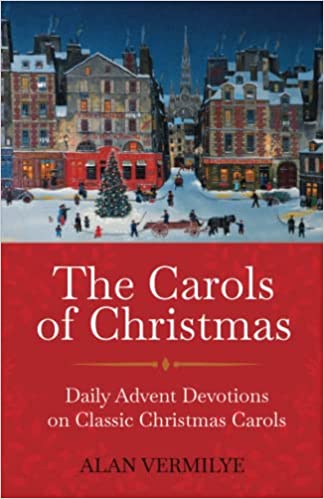For this second week of Advent, Alan Vermilye’s book The Carols of Christmas takes us to I Heard the Bells on Christmas Day.
The Christmas Conundrum:
Christmas is not only a great feast of the Church but of society as well. Christmas is supposed to be a time of joy and celebration, of family get-togethers, and of a celebration of peace and goodwill. This ideal of Christmas often falls very short. What of those whose life is joyless? What of those who have experienced great family loss and can no longer gather together because of the separation of death? And what of those at war? Where is Christmas in the bombardment of artillery and the sound of gunfire? How can there be joy and celebration when there is so much separation and strife? This is the conundrum of Christmas.
Henry Wadsworth Longfellow:
This Christmas Conundrum is where the great American poet Henry Wadsworth Longfellow (another Massachusetts Unitarian) found himself on Christmas Day in 1863. In 1843, Longfellow married Fanny Appleton. He and Fanny had six children. In 1854, at age 47, Longfellow retired from his teaching position at Harvard to live on the Charles River in Cambridge and began writing full-time. On July 9, 1861, Fanny’s dress caught fire and she died from her burns the next day. Longfellow was severely injured trying to save her. Eighteen months later, his diary entry on Christmas Day 1862 simply read: “‘A merry Christmas,’ say the children, but that is no more for me.”
In March 1863, his oldest son Charles joined the Union Army at age 18, and soon had a commission in the 1st Massachusetts Cavalry. On November 26, Meade attacked Lee at Mine Run just west of Fredericksburg, Virginia in his final attempt to destroy the Army of Northern Virginia. On the second day of the battle, Charles was severely injured by a bullet and returned home to hopefully recover. Meade’s attack is a failure and the War continues.
On Christmas Day 1864, Longfellow is without his wife. He is nursing his wounded son back to health. And the War is continuing without an end in sight. Christmas is less merry than it was in 1862. There is only loss and war and pain.
The Bells on Christmas Day:
Into this despondency and darkness, Longfellow hears the bells from the churches in and around Cambridge. Through the ringing of the bells, Longfellow rediscovers the spirit of Christmas. At first, Longfellow scoffs at the dissonance between the message of the bells and the utter lack of peace and joy in his life and in the world. But as he continues to listen, he discovers a deeper message in the bells. He realizes that there will be moments in life filled with grief and despair, but that God is alive, and that his righteousness will prevail in the end. “In despair I bowed my head; ‘There is no peace on earth,’ I said . . . Then pealed the bells more loud and deep; ‘God is not dead, nor doth He sleeps.’” In the bells, Longfellow discovered the enduring truth of which a more ancient poet once wrote: “Weeping may endure for a night, but joy comes in the morning.” Ps. 30:5.
Dinner is at 6. The menu is chicken teriyaki. Singing and Discussion around 6:45. Hope to see you here. (And if you have a bell, please bring it!)
I heard the bells on Christmas day
Their old familiar carols play,
And wild and sweet the words repeat
Of peace on earth, good will to men.
I thought how, as the day had come,
The belfries of all Christendom
Had rolled along th’unbroken song
Of peace on earth, good will to men.
And in despair I bowed my head:
“There is no peace on earth,” I said,
“For hate is strong and mocks the song
Of peace on earth, good will to men.”
Then pealed the bells more loud and deep:
“God is not dead, nor doth he sleep;
The wrong shall fail, the right prevail,
With peace on earth, good will to men.”
Till, ringing, singing, on its way,
The world revolved from night to day,
A voice, a chime, a chant sublime,
Of peace on earth, good will to men!

